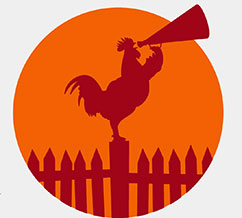
December 23, 2002
“NOT FOR SALE”
PAMPA, Texas (February 1965) – I’m a 5th grader at Stephen F. Austin elementary school in Pampa. My daddy is the band director at Pampa High School. They just had two big concerts last month with a famous trumpet player from the “Tonight Show” on TV. His nickname is “Doc” but his real name is Carl Severinsen. He’s a professional trumpet player, which means he gets paid for playing.
The concerts were really good – for band music – and so they decided to make a record. I got into records last year when I got my first record player and some Beatles records. I really like records, so when I heard my dad was going to make a record of the concert I thought, “Great! We’re going to be rich!”
But yesterday the first batch of records came in. We got like a whole box of them here at the house and opened it on the living room floor. I pulled one out of the box and was very confused and disappointed, because the cover didn’t have any cool pictures or designs or anything on it. It was totally black, except for big white letters:
NOT FOR SALE
What was going on? Why would they make these records and then not sell them? What’s the point of that?
Then Daddy turned on our hi-fi and we listened to the record. Instead of music, there was an announcer making an introduction. I recognized the voice from the radio, it was Warren Hasse who broadcasted the Pampa Harvester football and basketball games.
He talked about how Doc Severinsen came to do these concerts, and what the ‘kids’ (well, BIG kids to me!) did to get ready for it. He said something like this was a once-in-a-lifetime opportunity for the kids in the Pampa band. That for them to be able to rehearse for two days with Doc, to perform with him on stage for two nights … that whole experience and the very special memories they had the opportunity to make … Mr. Hasse said that, for those kids, those very special memories and experiences were … NOT FOR SALE.
FORT WORTH, Texas (December 2002) – I intended to develop this notion of “Not For Sale” as a warning of “over the top” advertising, commercialism, cultural conditioning, and other such uplifting topics. However, the more time I spent looking over my notes and examples (evidence?), the more depressed I got. I realized that I could not address the topics in the manner I wanted because I would unavoidably come across as a whining, bitching (not bitchin’), moaning, groaning, Mastercard-carrying commie pinko throwback.
So, in deference to the season I’ll cheerily pose these questions and allow you to provide your own confirming or denying examples (evidence?): Is there anything left that’s “not for sale”?
In an era of proliferating naming rights and corporate sponsorships for everything from museums to high school athletics to police departments … have we become so numb to trading our names and spaces for quick cash that we’re on an inevitable path toward the Grand Canyon becoming the “Abercrombie and Fitch Ditch“? How close are we to the “Golden Arches Gate Bridge,” the “New York Yahoo! Yankees,” and the “Empire State Building – presented by Viagra“?
Can we survive an environment of incessant solicitation in which the “signal-to-noise ratio” of what we see, hear, read, smell and touch becomes increasingly less than 1.0? Pasted on our television screens; plastered on our buses; insidiously and pervasively placed throughout our movies, blaring at us from speakers in the grocery stores, at the gas pump, in the malls; popping up and popping under and popping into emails and websites that claim to “personalize our experience” … sales pitches seem to be imbedded in everything we experience. Are we approaching the point on the teeter-totter where “annoying and personally obnoxious” begin to slide into “intrusive and psychologically damaging”?
As a consequence of this constantly being “sold to” … are we inevitably becoming more and more susceptible to indiscriminately “buying into” outlandish promises, fraudulent ‘guarantees,’ and unrealistic expectations perpetrated by those trying to “personalize our experiences,” from advertisers to politicians to school boards to salespeople to ‘sales associates’ (oh, please!) to the overt (and covert) propagandists on media talk shows?
Alfred Korzybski observed (warned?) that, “Who rules our symbols rules us.” As we tip-toe and hopscotch our way through the trappings of our myriad end-of-year symbol-laden traditions, I hope we spend a little time reflecting on what ‘they’ are ‘selling’ and what we’re ‘buying.’ I hope we recognize, and learn to protect, those moments and experiences that we consider … “not for sale.”